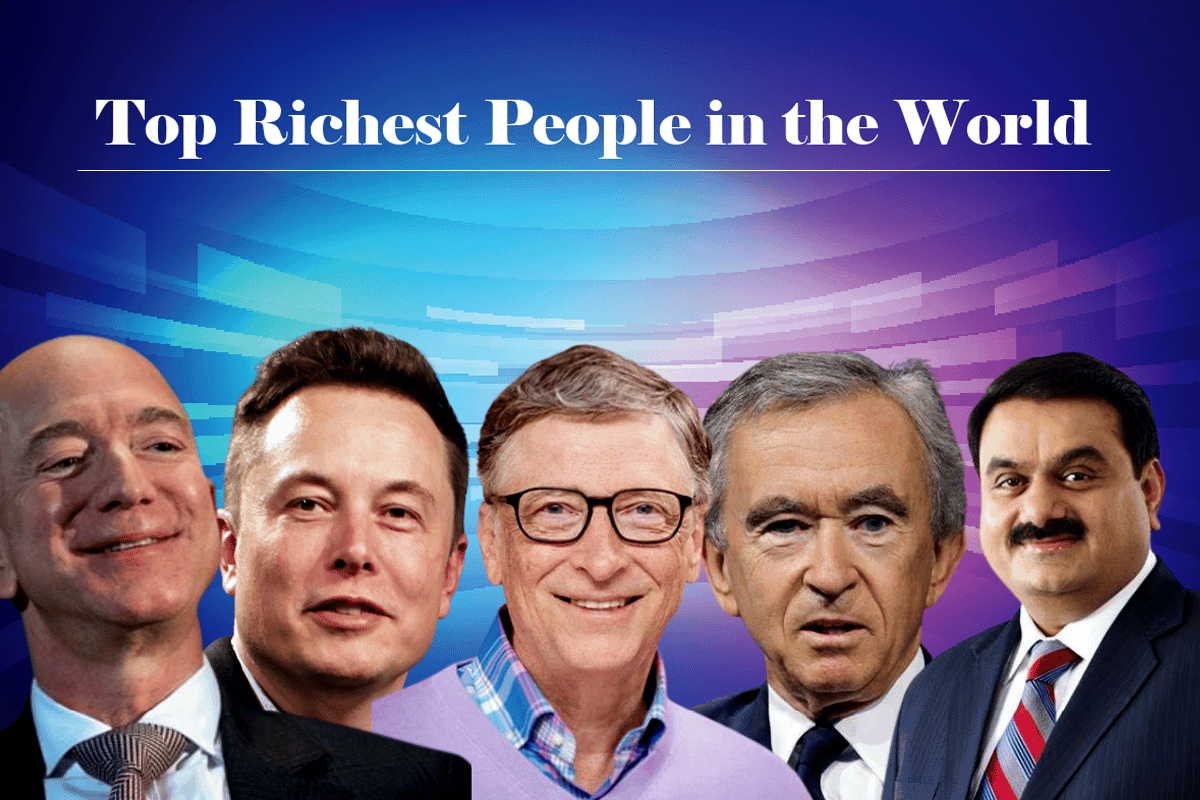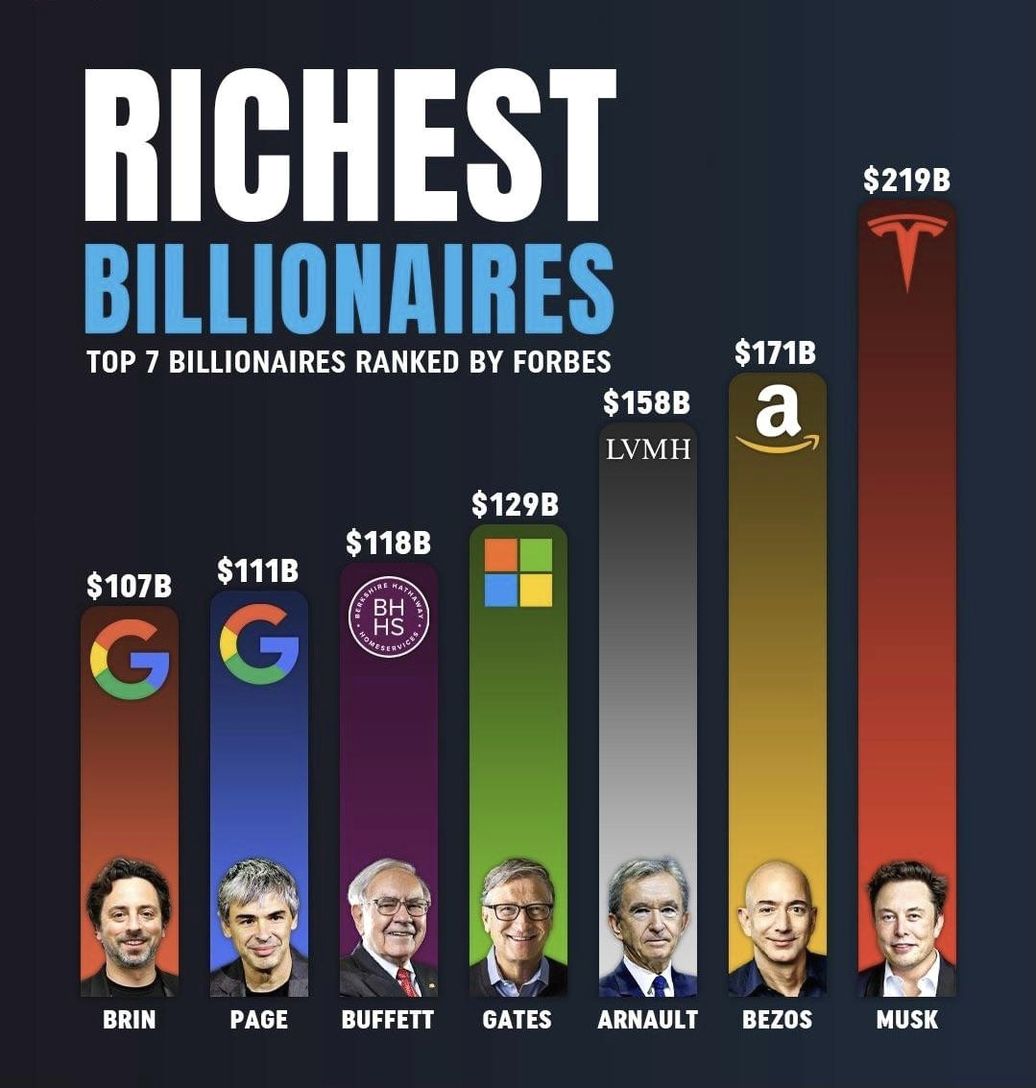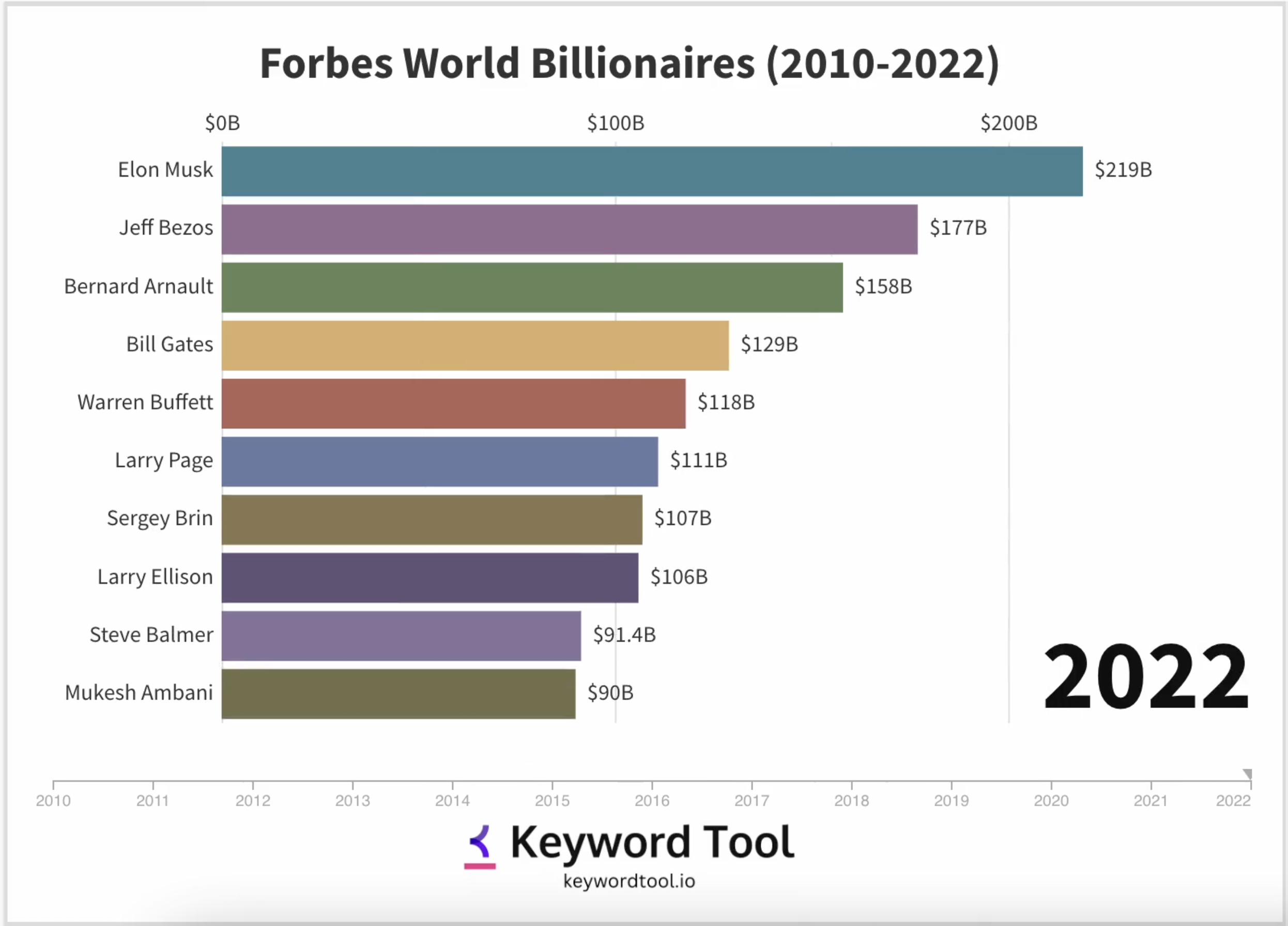The idea of someone being "the richest homeless person" feels, in a way, like a thought experiment, doesn't it? It's a phrase that really makes you stop and consider things, bringing together two concepts that seem, on the face of it, completely at odds. We typically think of wealth as having a home, a place to belong, possessions, and a certain level of comfort. And then, there is the state of being without a permanent dwelling, a situation often associated with a complete absence of financial means. So, when these two ideas meet, it creates a rather intriguing picture, a kind of puzzle for our minds to work through.
This interesting pairing prompts us to think about what "rich" truly means, and how we measure it. Is it always about money, about the sheer amount of currency someone has to their name? Or could it, just possibly, be about something else entirely? Perhaps, in some respects, it's about a richness of spirit, a deep well of knowledge, or even a network of connections that provide a different kind of value. The very notion of "the richest homeless person" forces us to look beyond the obvious, to consider aspects of human experience that money, quite honestly, cannot always buy.
We often hear about the people at the very top of the financial ladder, those individuals whose fortunes seem to stretch beyond what most of us could ever truly grasp. Yet, the existence of those without a fixed address, even if hypothetically possessing some form of unseen wealth, challenges our usual ideas about who has what. This article will explore the surprising concept of "the richest homeless person," putting it into perspective by looking at what actual wealth means in our world today, and how these two very different ideas can, perhaps, teach us something important about human value.
Table of Contents
- The Richest Homeless Person - An Idea That Stops You
- What Does "Richest" Mean for the Richest Homeless Person?
- Where Does Wealth Really Sit?
- How Do We Measure Riches?
- The Human Story Behind the Numbers
- Is There a Different Kind of Riches for the Richest Homeless Person?
- Changing Fortunes and the Homeless Person
- What Can We Learn from the Idea of the Richest Homeless Person?
The Richest Homeless Person - An Idea That Stops You
The phrase itself, "the richest homeless person," feels like a bit of a contradiction, doesn't it? It's like trying to picture a square circle, or a silent scream. Our minds are, you know, used to associating being without a fixed address with a serious lack of funds, often with great hardship. So, when someone brings up the idea of a person who is both incredibly wealthy and also without a home, it really makes us pause. It forces us to think beyond our typical definitions and assumptions about money and what it means to have a place in the world. It’s almost as if the very words challenge our deep-seated ideas about what prosperity looks like, and where it can be found.
This intriguing thought experiment isn't about finding a specific individual who fits this description, because, quite honestly, the publicly available records of the world's truly wealthy people do not list anyone in such a circumstance. Instead, it's about the bigger questions this concept brings up. It's about how we value people, how we define success, and what we truly believe constitutes a rich existence. For example, when we consider someone who is, say, rich in experiences or rich in connections, does that count as wealth? Or is it only about the numbers in a bank account? This unusual pairing, you see, invites us to look at the world, and wealth, through a somewhat different lens.
It also, in a way, highlights the vast differences in how people live their lives. On one side, we have people whose financial standing allows them access to almost anything they could wish for. On the other, we have individuals who, through various circumstances, find themselves without even the most basic of securities, like a roof over their heads. The idea of "the richest homeless person" seems to bridge these two very separate worlds, or at least makes us consider the space between them. It’s a very interesting point to ponder, really, when you consider the sheer scale of wealth that exists for some people.
- Tv Shows With Kelly Kapowski
- Joely Richardson
- Is Lamont Sanford Still Alive
- Pirata De Culican
- Bridgeville Reviews
What Does "Richest" Mean for the Richest Homeless Person?
When we use the word "richest," our minds, pretty much automatically, go to financial worth, don't they? We picture large sums of money, investments, and assets that can be easily turned into cash. For the people we usually talk about as "richest," like those on global financial rankings, their wealth is measured in billions, sometimes even hundreds of billions, of dollars. For instance, you know, just recently, one person, Elon Musk, was said to be worth an estimated $342 billion. That is, truly, an incredible amount of money, something that is, like, almost impossible to fully grasp for most of us.
But for the idea of "the richest homeless person," does "richest" necessarily mean having a huge bank balance? Or could it mean something else entirely? Perhaps it means having a wealth of knowledge, a deep understanding of the world, or maybe even a truly remarkable ability to connect with others. It could be about a richness of spirit, a resilience that allows someone to face incredibly difficult situations with grace, or a generosity of heart that enriches the lives of those around them, even if they themselves have very little in terms of material possessions. This question, you know, makes us think about the different ways we assign value.
It's also possible that "richest" for "the richest homeless person" refers to a kind of hidden or unconventional wealth. Maybe they possess rare skills, or have access to information that is incredibly valuable to certain groups. It could be that their wealth isn't liquid, meaning it's not easily converted to cash, but exists in a form that provides them with a different kind of power or influence. This pushes us to think beyond the typical definitions of prosperity that we see in financial reports. We usually think of wealth in very specific terms, but this idea, arguably, broadens that scope considerably.
Where Does Wealth Really Sit?
When we talk about wealth, our thoughts naturally turn to the people who top the global lists. You know, the individuals whose financial worth seems almost beyond belief. For instance, just recently, we saw estimates for someone like Elon Musk, who, you know, was apparently worth something like $342 billion. That's a truly staggering sum of money, a figure that, honestly, is hard for most of us to even picture. And then there are those centibillionaires, a group of fifteen individuals whose combined wealth, we hear, adds up to about $2.4 trillion. That's more, actually, than the total wealth of the bottom 1,500 billionaires put together. It's quite a lot, in a way, to think about.
The information we get about these incredibly wealthy people often comes from sources that track fortunes very closely. We learn about their net worth, their age, where they live, and how they built their vast sums of money. For example, the list of the world's richest people from 2025 shows us that these fortunes are often fueled by things like technology. Someone, for instance, rode the recent boom in artificial intelligence right back onto the list of the world's ten richest people, taking the spot of a big name in European fashion. This really shows how quickly wealth can shift and grow in certain sectors.
And it's not just about the very top names. The number of people with immense wealth has grown considerably over the years. Twenty years ago, for example, we found around 140 billionaires. Just three years later, that number had, you know, grown to 476. And this year, the list reached a record 793. This shows a pretty clear trend: the number of people accumulating vast amounts of money is, in some respects, steadily increasing. This accumulation of wealth is happening across different places too; for instance, the ten richest people in India were worth nearly $337 billion, which is over a third of their country's total, though that amount was down by a rather significant $56 billion from the year before.
Even when we look at individual countries, we see huge concentrations of money. Alice Walton, for example, the daughter of Walmart's founder, is considered the richest woman in the world, with an estimated worth of $107 billion as of July 1, 2025. She holds the 17th spot globally. These figures, you know, really put into perspective the sheer scale of wealth that exists. On the other hand, we also see people drop from these rankings, like Thailand's former renewable energy billionaire who fell from the country's 50 richest. The collective worth of all these billionaires, we find, is about $12.7 trillion, which is, honestly, $400 billion less than a previous count, showing that fortunes can also shrink.
How Do We Measure Riches?
Typically, when we measure someone's riches, we look at their net worth. This means adding up all the things they own, like money in banks, properties, businesses, and investments, and then subtracting any debts they might have. This is how the big financial publications put together their lists of the world's wealthiest people. They gather information on everything from stock holdings to real estate, giving us a very detailed picture of someone's financial standing. It’s a pretty straightforward calculation, in a way, for people with clear assets.
But what about other kinds of wealth? For the concept of "the richest homeless person," for instance, how would we even begin to measure their prosperity if it isn't based on money? Would it be measured by the number of people they've helped, or the amount of wisdom they possess? Perhaps it would be about their ability to adapt and survive in difficult situations, a kind of resilience that, you know, many people with vast financial resources might never need to develop. This makes us think that there are, perhaps, many different ways to be rich, ways that aren't always about dollars and cents.
The information we have on the world's actual billionaires is very specific. We know their age, their country of residence, and the source of their wealth. This kind of detailed accounting is just not possible for someone who isn't part of that system, especially if their "riches" are not monetary. So, while we can easily look up the 200 richest people on a list from March 8, 2024, or March 7, 2025, and see how tech fortunes, for example, are dominating, the idea of measuring the wealth of "the richest homeless person" pushes us to consider what truly holds value beyond these very clear financial markers.
The Human Story Behind the Numbers
Behind every number on a wealth list, there is, of course, a human story. Whether it's someone who built a massive technology company, or inherited a vast fortune, their journey is often complex and filled with various turns. We hear about how some people, like those who saw their wealth grow with the rise of artificial intelligence, have had incredible successes. These stories often highlight hard work, smart decisions, and sometimes, just being in the right place at the right time. They are, quite frankly, narratives of ambition and achievement that captivate many people.
But the story of "the richest homeless person" would be, you know, a very different kind of tale. It wouldn't be about boardrooms or stock market gains. Instead, it might be a story of perseverance in the face of incredible odds, of finding meaning and purpose without the traditional comforts that money provides. It could be about a person who, despite having no fixed address, manages to maintain a sense of dignity, a sharp mind, or a generous spirit. This kind of story challenges our assumptions about what it means to live a meaningful life, and where true value lies. It's a rather profound thought, when you get right down to it.
These contrasting narratives, the ones about the world's most financially successful individuals and the hypothetical one about "the richest homeless person," really highlight the vast spectrum of human experience. They show us that while financial prosperity is one measure of success, it's not the only one. There are, actually, many different ways to be "rich" in life, and sometimes those ways have very little to do with money. This is something, you know, that we often forget in our daily lives, where material possessions are given so much importance.
Is There a Different Kind of Riches for the Richest Homeless Person?
Could it be that "the richest homeless person" possesses a kind of wealth that money simply cannot buy? Think about it. Perhaps they have an incredibly rich inner life, filled with deep thoughts, philosophical insights, or a profound connection to the world around them. This kind of richness, you know, doesn't show up on any financial statement, but it can be incredibly valuable to the individual who possesses it. It's a wealth that is, in a way, immune to economic downturns or market fluctuations, something that truly belongs to them, no matter their outward circumstances.
Another form of non-monetary wealth could be a rich network of human connections. Imagine someone who, despite having no home, has built incredibly strong bonds with people from all walks of life. These connections could provide support, companionship, and a sense of belonging that is, arguably, far more precious than any amount of money. This kind of social capital, as some people call it, is a powerful resource, offering comfort and assistance in ways that money often cannot. It's a kind of prosperity that is, in some respects, truly invaluable.
Then there's the richness of experience. Someone who has lived without the usual comforts might have a unique perspective on life, a deep understanding of human nature, and a resilience that comes from overcoming significant challenges. These experiences, you know, shape a person in ways that are deeply enriching, giving them insights that others, who have always lived in comfort, might never gain. This kind of wisdom, honestly, is a treasure in itself, a form of wealth that is accumulated through living, not through earning.
Changing Fortunes and the Homeless Person
The world of wealth, as we know from the latest reports, is constantly shifting. Fortunes can grow incredibly quickly, especially with things like the tech boom, but they can also shrink. We've seen, for instance, how the total worth of the world's billionaires, a collective $12.7 trillion, was actually $400 billion less than a previous count. This shows that even for the super-rich, wealth is not always a fixed thing; it can, in a way, go up and down. Similarly, we heard about Thailand's former renewable energy billionaire who, you know, dropped from the list of the country's 50 richest. This shows that even immense wealth can be quite fluid.
This fluidity of fortune applies to everyone, not just those at the very top. A person can lose their home and their financial stability due to many different circumstances, some of which are entirely outside their control. And just as fortunes can be lost, they can, in some cases, be rebuilt, even from the most difficult starting points. The idea of "the richest homeless person" might, in a way, highlight this very human capacity for resilience, for finding ways to thrive even when the usual markers of success are completely absent. It's a very powerful thought, really, when you consider it.
The contrast between the consistently tracked wealth of the world's billionaires and the often unseen struggles of people experiencing homelessness is, honestly, quite stark. The wealthy are counted, their assets detailed, their changes in fortune publicly noted. For someone without a home, their "fortune" is rarely, if ever, measured in the same way. This difference in how we perceive and account for value is, you know, a key part of what makes the idea of "the richest homeless person" so thought-provoking. It challenges us to look beyond the obvious metrics and consider a broader range of human experiences and values.
Related Resources:



Detail Author:
- Name : Taurean King
- Username : jpaucek
- Email : acarroll@yahoo.com
- Birthdate : 2007-04-01
- Address : 142 Borer Motorway Apt. 339 Antonefurt, DE 79785
- Phone : (361) 519-3089
- Company : Howe-Ortiz
- Job : Securities Sales Agent
- Bio : Odit facere sequi et corporis vitae culpa mollitia et. Nisi nihil sit ea odio. Cumque ea velit tempora omnis. Expedita dignissimos labore et maiores.
Socials
tiktok:
- url : https://tiktok.com/@annabell_official
- username : annabell_official
- bio : Voluptatum sed fuga quia dolor delectus id dolore.
- followers : 1712
- following : 876
instagram:
- url : https://instagram.com/annabell.mraz
- username : annabell.mraz
- bio : Minima odit ut saepe non rerum sed qui. Ut vero earum aut ratione maiores cupiditate eaque.
- followers : 5633
- following : 2707